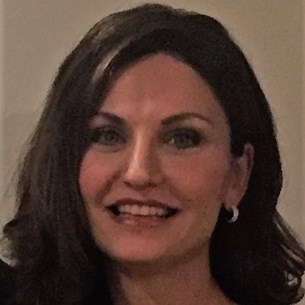Meeting
2024 ASCO Annual Meeting

Christian Brothers University, Memphis, TN
Background: Oncology settings are known for their hierarchical structure, with distinct status demarcations among professional occupational specialties. The physician oncology referral process, a critical aspect of cancer management, reflects this hierarchical nature. This process, initiated upon suspicion of cancer, entails sequential clinical evaluation and treatment by physicians in the following order: surgeons, medical oncologists, specialty physicians, and referral physicians like interventional radiologists and radiation oncologists. Those at the top of the hierarchy wield considerable influence over the oncology referral process, directing subsequent patient care. While several studies have criticized the effectiveness of cancer management teams, little attention has been given to the potential role of the referral process in reinforcing hierarchical structures within tumor boards, possibly undermining their intended goals. Methods: This qualitative, ethnographic study investigated the interplay between the physician oncology referral process and tumor board outcomes in oncology settings. Data spanning three years were collected from seven research hospitals in the United States and the United Kingdom, encompassing observations from 44 tumor boards and eighteen semi- and unstructured interviews. The principal investigator conducted an analysis and synthesis of the gathered data. Results: The ethnographic study revealed that the hierarchies observed in tumor boards align with and are influenced by the traditional oncology referral process. Group interactions and treatment deliberation outcomes were significantly affected by the social dynamics of hierarchy mirrored in the referral process, ultimately compromising the intended objectives of tumor boards. Surgeons and medical oncologists, who traditionally lead the referral process, tended to dominate tumor board meetings. In contrast, sub-specialties like interventional radiologists and radiation oncologists, positioned at the end of the referral process, were less engaged in deliberations and often overlooked for treatment referrals. The higher the position in the hierarchy and referral process, the more pronounced the tacit authority and ability to direct patient treatment. Conclusions: This study highlights the alignment of traditional oncology referral processes with tumor board dynamics, showcasing similar social and clinical impacts. Despite potential resentment cultivated by reinforced hierarchy in the referral process, tumor board members tend to acquiesce, accepting decisions even when they may not align with optimal patient care.
Disclaimer
This material on this page is ©2024 American Society of Clinical Oncology, all rights reserved. Licensing available upon request. For more information, please contact licensing@asco.org
2024 ASCO Annual Meeting
Publication Only
Publication Only: Care Delivery/Models of Care
Care Delivery and Quality Care
Disparities in Care
J Clin Oncol 42, 2024 (suppl 16; abstr e13752)
10.1200/JCO.2024.42.16_suppl.e13752
e13752
Abstract Disclosures
2022 ASCO Annual Meeting
First Author: Christopher MKL Yao
2023 ASCO Quality Care Symposium
First Author: Caroline Schenkel
2024 ASCO Gastrointestinal Cancers Symposium
First Author: Victor Lo
2022 ASCO Quality Care Symposium
First Author: Varun Chowdhry